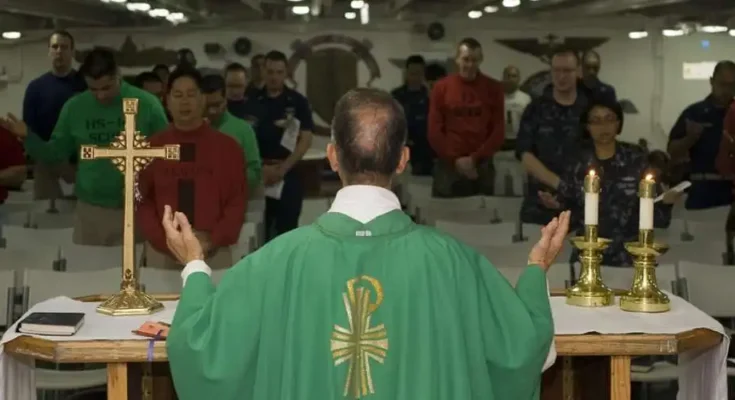Are we truly aware of the rich theological resources that open up when we respond – perhaps unthinkingly, automatically and habitually – to the priest’s greeting Dominus vobiscum (The Lord be with you) with the customary formula Et cum spiritu tuo (And with your spirit)? The extraordinary beauty inherent in this brief exchange or, rather, in the space opened up by a few simple words spoken with clarity, deserves careful analysis, which we would like to offer in this article as a small contribution to reflection on synodality.
Moreover, the very fact that this richness goes beyond the liturgical sphere, its appropriate and nourishing Sitz-im-Leben, suggests that there is no sphere of Christian life that is not influenced by it. In other words, there can be no true koinonia if each of the participants first does not own the response Et cum spiritu tuo. There is no synodality unless one is convinced of the performative power inherent in Et cum spiritu tuo. There can be no sincere diakonia if the one who serves does not first respond and say Et cum spiritu tuo with the whole self, more merely than with words, discerning in the one being served – following the words of the Master himself (cf. Matt 25) – the tacit greeting Dominus vobiscum. There can be no true evangelization of culture nor inculturation of the Gospel if there is no response Et cum spiritu tuo. There can be no authentic listening if we do not place ourselves in the divine breath that is proper to Et cum spiritu tuo.
This is one of the most synodal expressions we know. There is no doubt that it is not simply about the priest’s human spirit as something natural, as if this expression indicated only his vital core. It is also about his ability to transcend himself and, above all, the recognition of the activity of the Holy Spirit in the human being, at the moment when in his fragility he opens himself to another being equally vulnerable. The complexity of the term “spirit,” which already in its Hebrew origin connects the most intimate part of the human with both the cosmic and the divine, and the elusive character of the Spirit, who hides behind his work, allow us to interpret it in these terms.
n this article we will highlight three theological dimensions of the expression Et cum spiritu tuo, which will substantiate not only the legitimacy of this interpretation, but also its suitability to open the synodal space insofar as this expression is communal, pneumatological and maternal.



